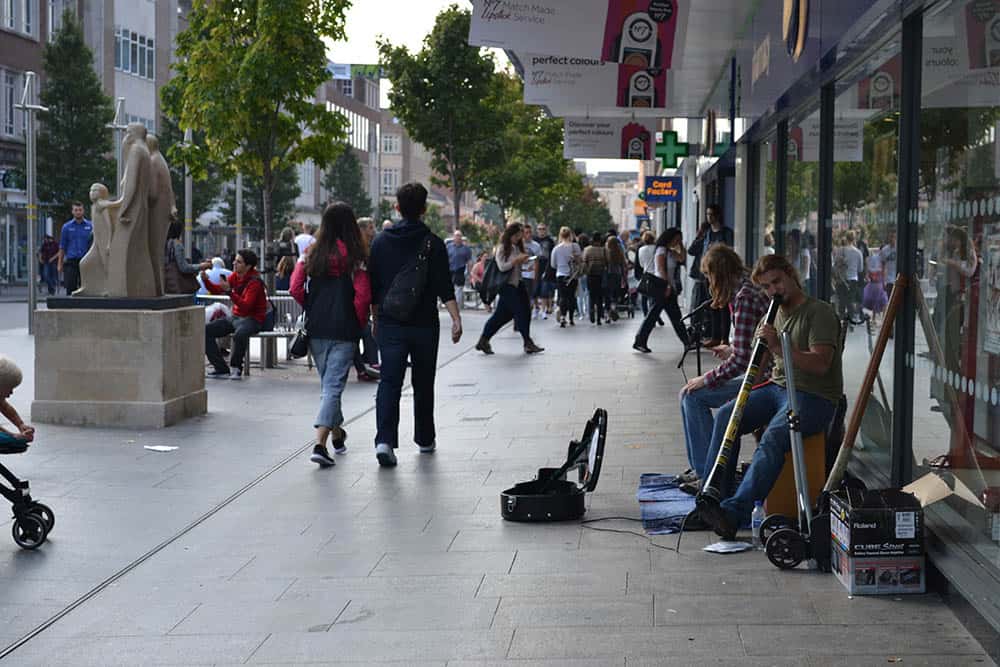Trade thoughts: Can the high street ever fully recover from the coronavirus lockdown?
Already struggling before the coronavirus pandemic, the impact of lockdown left many retailers across multiple sectors in a difficult situation, particularly with the looming threat of COVID-19 still in the air and local lockdowns popping up across the country.
According to findings from the Centre for Retail Research released this September, 125,515 retail jobs have disappeared between January and August, along with the permanent closure of 13,867 bricks and mortar stores – many found on the high street. In response, the government has launched a range of initiatives designed to help high streets throught the pandemic.
Five mobility retail leaders discuss whether the high street and those who operate on it will be able to recover from the coronavirus or if the end of the high street as a shopping hub is upon us.
All thoughts were submitted to THIIS in August 2020…
Alastair Gibbs, Managing Director of TPG DisableAids

“City centres as an entertainment centre are becoming the normal. Trading retailers are moving to out of town retail parks and online which in the overall plan of things makes perfect sense. Parking is easy, access for deliveries and customer pick-ups are easy and costs are generally lower.
“COVID-19 did not cause this transition, it simply helped to speed it along.
“Time to leave the high street for bars, coffee shops, restaurants and night time entertainment. Large shopping malls and out of town retail estates that are not weighed down by pedestrian and cyclist issues and do not create traffic gridlock to anger the environmental supporters will be the normal of the future.”
Karen Sheppard, Managing Director of People First Mobility

“A lot of people took to the internet to get what they needed, bringing back up the question that has been debated in the past: high street or internet. However, can the internet ever match the atmosphere of the high street? Is a homepage as helpful as a sales assistant and, on a more serious note, is online shopping safe?
“The end of the high street is not upon us just yet. People will still want to go out for a wander round shops, talk to staff and interact with people.
“The high street can recover but there has to be customer service above and beyond what is available on the internet and products have to be available to take away immediately.
“The suppliers also need to support the high street retailers more – not like some who have gone D2C and are selling things a lot cheaper than the RRP that they have been promoting to dealers for years, as well as advising potential customers that although they can’t see the physical products before they buy them, they can go to a dealer but it will be a lot more expensive. So, years of supporting a manufacturer for them to now tell high street retailers’ customers who ask about going to the high street that it will be more expensive. This is not supporting high street dealers, and if all retail were to close, it would not benefit the manufacturers at all.”
Matt Mohr, Managing Director of Kent Mobility

“This applies to some products more than others, particularly for higher cost products or where the product is highly relevant to the outcome of a customer’s lifestyle.
“I think there will always be a place for retailers, however, even prior to COVD-19, there was a considerable issue with online retailers undercutting bricks and mortar. Either because they could buy in at a lower price and/or didn’t have the expense of maintaining a retail premises and assessors.
“Since mid-June though, things have gradually begun to head in the right direction for most retailers. Hopefully that will continue in the face of so much uncertainty.
“At Kent Mobility we have seen a gradual improvement over the last couple of months, really driven by the government’s official position of slowly easing lockdown restrictions. Should that reverse and we see more restrictions put back in place, needless to say it will impact retail.”
Tim Mills, Head of Business for Motion Healthcare

“As a supplier, I see our job as continuing to offer retailers all of the tools they need to be successful. Innovative products with great margins, products that don’t fail and, if they do, the right level of support needed to keep everyone involved as happy as possible.
“Also, and more importantly, one of the major reasons we limit the number of partners we have is so that we can make more personal commercial decisions so we can ensure we look after all of our partners in times of need like this. Whether it’s a few extra days to pay an invoice or agreeing to a warranty claim when the warranty has just expired, we pride ourselves on being simple and enjoyable to do business with.
“During uncertain times like this, I believe it’s that level of support that will help both us and our partners on the high street to continue to be successful.”
Billy Finnie, Operations Manager at Mobility Scotland

“Mobility Scotland generate c60 per cent of overall revenue from our bricks and mortar retail site, based on recent sales trends we firmly believe the high street will recover and prosper, especially mobility retailers who quickly adapted and tweaked their traditional business models.
“There are some brilliant examples of businesses who have already made a step-change, creating new routes to market by blending in with their traditional models.
“This demonstrates great versatility and fleet of foot. Significantly, the retail model will last for some considerable time as it is perfectly aligned to our industry. Customers now demand a truly value adding customer buying experience in an environment which is inspiring & professional, where they will be listened to, guided and can try before they buy.
“To vindicate our view, the ONS reported July saw general retail sales up 3 per cent on pre-COVID figures, with August looking even stronger. This is fantastic news for high streets and consumers will bounce right back into the arms of the retailers who do a great job for them – it has already started.”
https://thiis.co.uk/trade-thoughts-can-the-high-street-ever-fully-recover-from-the-coronavirus-lockdown/https://thiis.co.uk/wp-content/uploads/2019/10/UK-high-street-unsustainable.jpghttps://thiis.co.uk/wp-content/uploads/2019/10/UK-high-street-unsustainable-150x150.jpgAnalysis & InsightsNewsroomRetailer NewsSupplier NewsTrade NewsTrade Thoughtsbricks and mortar,centre for retail research,closures,coronavirus,COVID-19,High Street,Kent Mobility,mobility scotland,Motion Healthcare,People First Mobility,TPG DisableAids,trade thoughtsAlready struggling before the coronavirus pandemic, the impact of lockdown left many retailers across multiple sectors in a difficult situation, particularly with the looming threat of COVID-19 still in the air and local lockdowns popping up across the country. According to findings from the Centre for Retail Research released this...Calvin BarnettCalvin Barnettcalvin.barnett@bhta.comAuthorTHIIS Magazine


